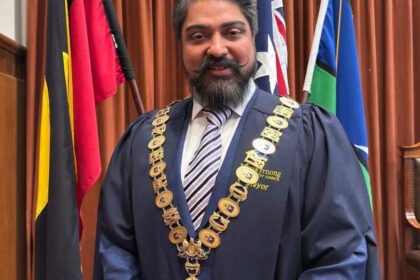Once, Europeans colonised much of the world, reshaping continents and peoples to suit their ambitions. Today, many of their descendants protest against immigrants, fearing the very diversity their ancestors helped spread. Karma, it seems, just works on a slow clock.In recent years, a striking surge in anti-immigration rhetoric and protest movements has unfolded across the globe—from Western democracies to parts of Asia. These movements are no longer fringe but mainstream, amplified by political leaders, nationalist parties, and even global influencers like Elon Musk. A single repost or blunt remark from Musk—describing asylum policies as “treasonous” or endorsing rallies from Australia to Japan—has been enough to trigger headlines and fuel protests.
Why anti-immigration protests are surging
The rise of anti-immigrant movements can be traced to overlapping crises: economic insecurity, demographic shifts, cultural clashes, and geopolitical upheaval.For many citizens in Europe, the United States, and beyond, immigration has become the lightning rod for deeper fears about national stability and identity. Concerns over crime and security dominate the discourse, often linking migrants to terrorism or violent crime.Economic anxiety reinforces these fears. Inflation, stagnant wages, and fears of automation make many believe migrants compete for jobs, depress wages, or strain welfare systems. Housing shortages and pressure on healthcare and schools are frequently blamed on immigration, regardless of actual data.For politicians, these sentiments are fertile ground. Anti-immigration rhetoric reliably translates into votes, framing parties as defenders of sovereignty and cultural order. Beyond elections, protests, rallies, and speeches recast border control as patriotic duty.Yet, pro-immigration voices point to a different reality: OECD and UN studies show migrants contribute more in taxes than they take in benefits. They are essential in economies with ageing populations—particularly in Japan, Italy, and Germany—filling critical labour shortages in healthcare, agriculture, and construction. Human rights groups stress that many are refugees fleeing war or climate disasters.Social media turbocharges both narratives: videos of crimes involving migrants circulate widely, fuelling anger, while migrant success stories and solidarity campaigns also go viral. The result is a polarised environment where immigration dominates politics, policy, and protest alike.
Historical backdrop: Europe’s MENA migration
Migration from the Middle East and North Africa (MENA) to Europe has deep post-colonial roots. In the 1950s and 1960s, Western Europe recruited “guest workers” from Turkey, Morocco, and Algeria to power post-war recovery. Over time, conflicts—the 1973 oil crisis, the Gulf wars, and most significantly the Syrian civil war—pushed millions toward Europe.The 2010s refugee crisis marked a turning point. Syrians, Libyans, and Yemenis risked Mediterranean crossings, testing European asylum systems. At the same time, economic migrants from North Africa sought opportunity in Europe, aided by diaspora networks and historical ties. These movements reshaped the continent, embedding large Muslim populations and intensifying debates on multiculturalism and national identity.
The global protest map
United States: Immigration as wedge issue
In Trump’s second term, immigration enforcement has again become central. Since January 2025, ICE raids in major cities—Los Angeles, New York, Chicago, Philadelphia—have detained hundreds, often without warrants. Trump, Vice President J.D. Vance, and Senator Ted Cruz repeatedly tie migrants to crime and welfare abuse. Deploying National Guard troops in cities, later ruled illegal by courts, sparked mass demonstrations.Elon Musk amplified the firestorm, denouncing “open borders” and reposting rally clips. The protests underscored deep divisions: for some, migrants are “invaders”; for others, victims of unjust crackdowns.
United Kingdom: Post-Brexit nationalism
Brexit made immigration the heart of British politics. Slogans like “Stop the Boats” frame migrants crossing the Channel as an “invasion.” Violent protests in Dover and beyond, fuelled by far-right groups, reveal the intensity of feeling.Musk has waded into this too, criticising Prime Minister Keir Starmer and Labour ministers for their handling of grooming gang cases, accusing them of complicity in failures to protect victims. His interventions triggered protests in multiple cities, deepening the cultural and political divide.
Australia: Marches and Musk’s reposts
In August 2025, the “March for Australia” drew about 15,000 people demanding stricter immigration rules. Right-wing politician Pauline Hanson lent support, while Musk amplified the rallies online—though he exaggerated crowd sizes to 100,000, later corrected by police.The episode reflected Australia’s deeper unease: identity, labour market fears, and cultural change. Media split sharply, with conservative outlets sympathetic to protesters and liberal outlets warning of extremist infiltration.
Japan: Rare rallies, big impact
Japan, long resistant to mass immigration, saw rare protests in Osaka, driven by the ultranationalist Sanseito party. Campaigning on “Japanese First,” the party framed immigration as a “silent invasion.”Musk’s one-word response—“Good”—to a video of the rally gave it global visibility. Japan’s dilemma remains stark: it needs foreign workers to offset its ageing population but fears cultural dilution.
Germany: AfD’s rise
Germany’s far-right Alternative für Deutschland (AfD) scored record gains in 2025 elections, fuelled by anti-immigration campaigns. AfD leaders engaged with Musk online, even inviting him to events.The result: mainstream parties such as the CDU shifted rightwards, adopting harsher asylum and deportation policies. Immigration is now the central axis of German politics.
Elsewhere in Europe and beyond
- Italy: Giorgia
Meloni balances tough rhetoric with selective guest worker programmes. - France: Marine Le Pen’s National Rally drives anti-immigration sentiment, with polls showing her ascendant.
- Hungary: Viktor Orbán doubles down on cultural homogeneity, while quietly importing labour under pressure.
- Turkey and Balkans: Use migration as leverage in EU negotiations.
- South Korea and Taiwan: Nationalist resistance to reforms mirrors Japan.
- Global South: Leaders highlight Western hypocrisy—nations built by immigrants now shutting their doors.
Elon Musk: From immigrant to agitator
Elon Musk, once the archetype of immigrant success—South African-born, Canadian-educated, US-based billionaire—has become an unlikely figurehead for anti-immigration narratives.Since 2024, he has drawn a sharp distinction between “legal” and “unvetted” immigration, warning of “disaster” if borders are left unchecked. His amplification of protests—from Australia to Japan—has been embraced by far-right groups, especially in Germany.Critics accuse him of legitimising extremist narratives. Supporters say he voices uncomfortable truths ignored by political elites. Either way, Musk’s megaphone ensures his words ripple across continents, magnifying protests and polarising debate.
Media framing: Fear vs fact
How the media frames immigration matters as much as the protests themselves.
- Fear-driven framing: Migrants portrayed as security threats or cultural invaders; isolated crimes amplified; rallies exaggerated.
- Fact-driven framing: Investigations highlight migrant contributions to economies, labour markets, and innovation; fact-checkers correct inflated claims; human stories underline vulnerability and resilience.
Social media intensifies the divide. Viral clips can spread misinformation faster than corrections, while success stories often remain confined to niche audiences. In this tug of war, perception often outweighs evidence.
Final words: Fact, fear, and the future
Immigration is neither a crisis nor a cure-all—it is a reality of the modern world. Nations must address integration and security challenges, but shutting doors ignores migrants’ economic and cultural contributions.Indian-origin professionals in the United States, for example, have transformed technology and AI, founding startups, leading companies, and driving innovation. Similar stories echo across healthcare, academia, and construction. Migrants have built industries and created jobs, often in places locals will not work.The choice for societies is simple: navigate the politics of fear or harness the opportunities of connection. Immigration will remain polarising—but it will also remain indispensable.







